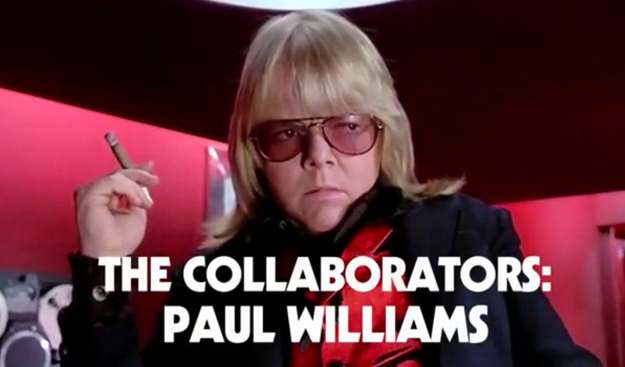 June 10, 2013
June 10, 2013 THE COLLABORATORS: PAUL WILLIAMS

Every time I write a post about the music “piracy” debate, I hope it will be my last post. And every time, I am disappointed. Seriously, people, when will we move past this discussion? Since its inception, the music industry has fought innovation and technology (mind you, we are not alone in this) - from the piano roll to the radio. And every time, during the battle, the industry shrinks - because it takes a lot of energy to fight change - and every time, post the battle, the industry grows larger than before.
Lesson learned? Apparently not by Paul Williams: http://bit.ly/13L01YV
Dear Paul, hear this: NO ONE who understands business on any side thinks that creators should not be compensated for their work, period.
And this ongoing narrow-minded soundbite that “it’s the pirates that are killing our business” just doesn’t hold water. The world is a very different place (beyond piracy) than it was in the “glory days” of the music business.
You remember, the “glory days” when record companies would claim a million promos and attempt to stiff the songwriters on those units? I have an old friend who experienced just that. He had to decide (along with his fellow writers) if they were going to bite the hand that fed them by taking a stand - and risk never getting cuts again. Those good old days. Sounds like stealing to me…
Paul, today we live in a world where people have an enormous menu of entertainment choices. I’m sure that has nothing to do with the decline of music. I’m also sure that the choices of the now flagging RIAA (the lapdog of the incumbent industry mentioned above) suing it’s consumers had nothing to do with the public’s perception and support of our business.
Remember when you were a rebel and someone told you not do do something? It’s not an excuse, but a fact.
I was present for the launch of the iTunes music store, sitting 5 rows from the man who single-handedly built the new music business from the outside, while inside we all stood around whining about our cheese being moved. Jobs’ first slide in the presentation simply stated:
People who want to steal are going to steal, period.
He went on to say that the opportunity was providing a compelling alternative to free. Genius. 25 billion songs later (and nearly 50% of most releases now sold digitally) that alterative continues to be compelling to customers. Not to mention concepts like unlimited inventory, 24/7 availability, cost savings/environmental impact (remember jewel cases?), and the list goes on.
Perhaps the music industry had it face pressed too close to the glass to see it. It’s often the case that when you are too close to the problem … the solution is nearly impossible to divine; too many stakeholders want to keep things just the way they are.
Out of the ashes of the Napster era, the music business has been forced to rethink itself. Pain is a great motivator, and the playing field is further flatted. Technology has made it possible to create compelling content for next to nothing. So we are back to the content itself. And isn’t that what’s important?
There are two winners in the new paradigm. Consumers and creators.
The losers are the people and institutions who continue to attempt to control the market through legislation and litigation, wasting their precious time, energy and resources on pursuing a flawed strategy that will not end well for them.
Rethink what is possible. Then go DO something innovative. The world will be better with our collective creativity focused on what’s possible, rather than what was.
Are you up to it?
 Piracy | tagged
Piracy | tagged  music piracy
music piracy 





Reader Comments